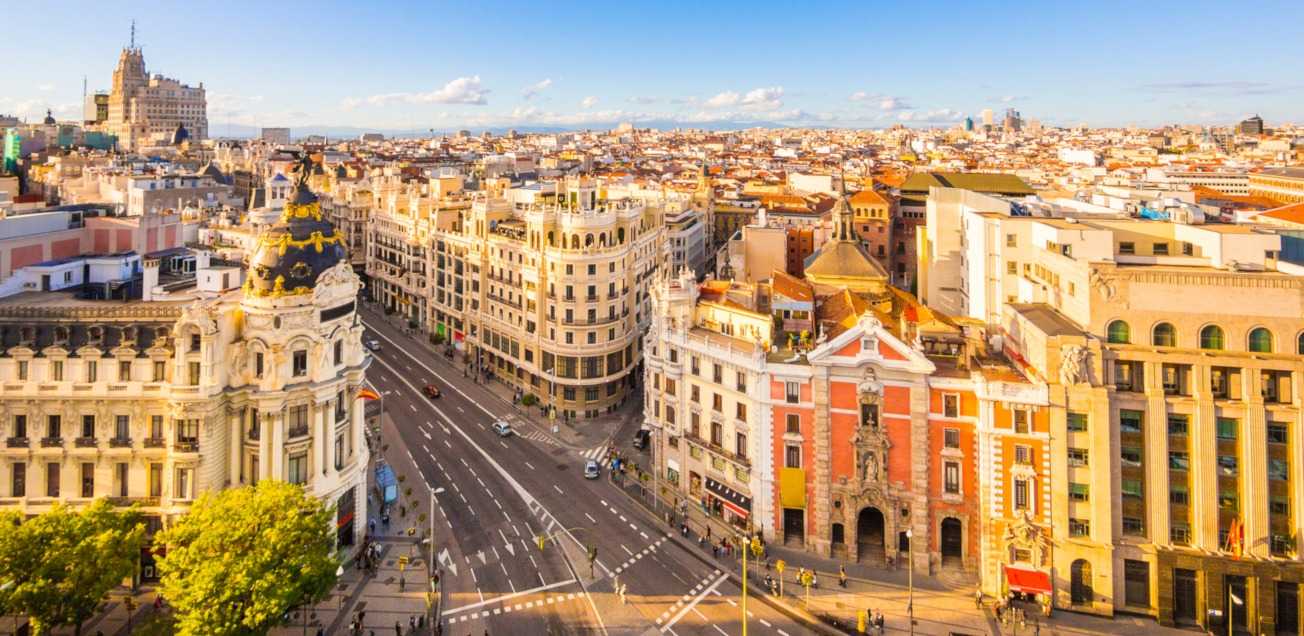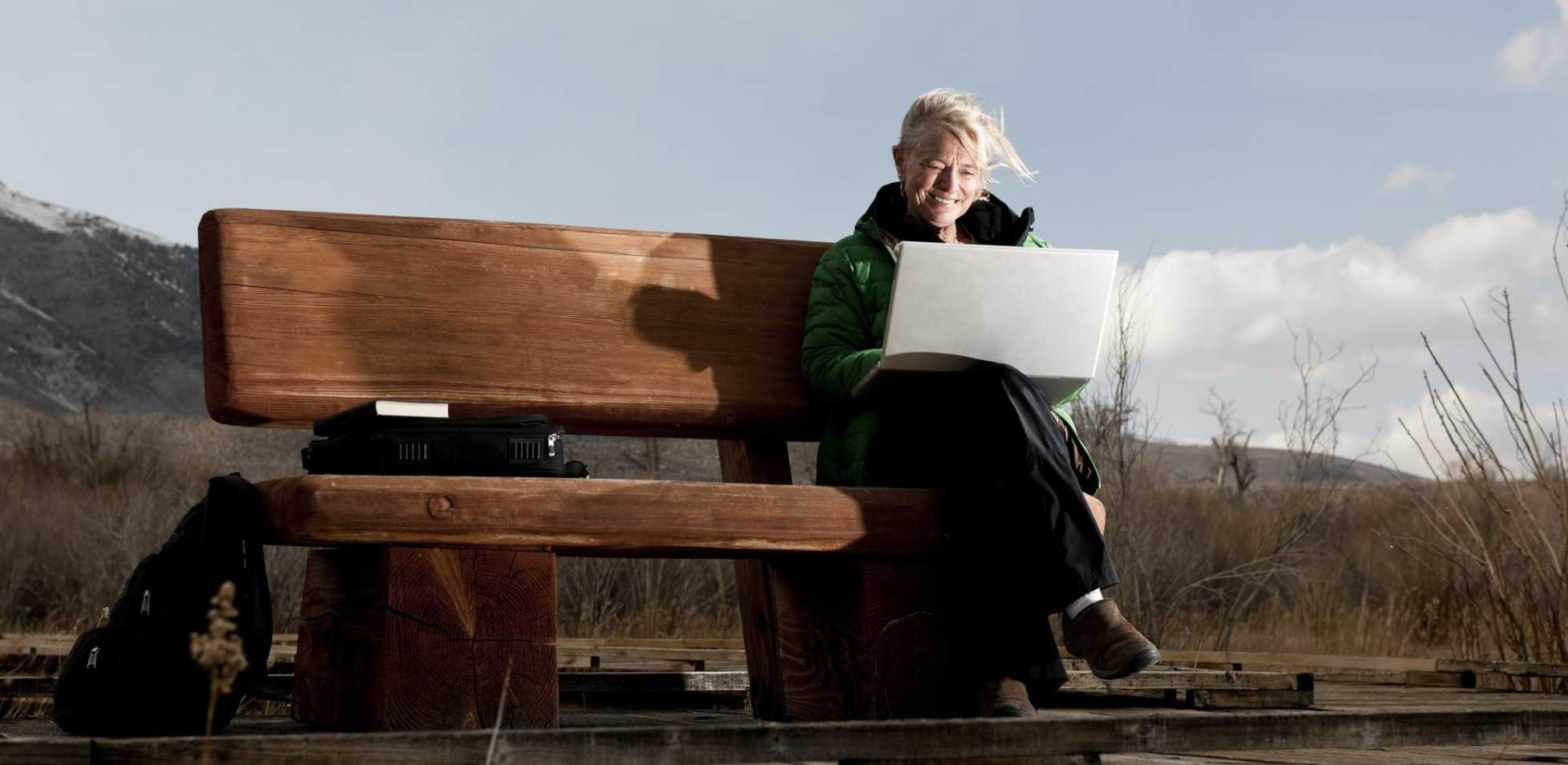Identity or Something Like It
In Anglo cultures (particularly in the US) you are very often asked where you are from — not necessarily because you may happen to have an accent, but because it’s a question that is almost naturally embedded in casual conversation, right along with “what do you do for a living?”. So, where you come from and where you are have become the basis for defining you as an individual.
A Nomadic Identity
In the case of the United States, this is a bit ironic, considering that it is such a young country, and your origin could very well be considered an almost trivial aspect of your life. However, it is easy to draw the conclusion that life in the US is viewed as some type of a journey — where you come from, what you do for a living, and, therefore, where you are headed. That may be why the rags-to-riches stories are so celebrated and revered over there and why pop culture echoes this concept.
You hardly ever meet someone who is from somewhere and stays there forever. The US is a land of nomads. The citizens of Spain are also big travelers, but that notion is barely noticed — it’s not something that they wear up on their sleeve. Living in Madrid, you get to meet people from all over Spain and from other parts of the world, but many tend to dismiss Madrid’s nomadic nature. This is perhaps because what’s brought here from abroad is more eagerly embraced than what’s exported. This applies, I think, to both cultural phenomena in their most trivial sense, and general conceptions of life — how we choose to live our life, how we balance work, personal space, etc.

Two Countries Shaping One Identity
The concept of identity or what it entails has always been somewhat present in my life. It became even clearer, however, when I was about 16 or 17 years old. At that time, I started to go out with friends and bouncers at the entrance of pubs and clubs would ask for my ID, which would prompt an immediate reminder in my head that I was a little ”different” from the rest. I’m not a Spanish citizen, so I always had to carry a residence permit or my US passport. Granted, when I was in elementary school, people would notice my blond hair and they would call me by last name, which would accentuate my foreigner status.
However, I soon realized that I knew very little about “my country.” That is why I decided to move back right after high school, when I was 18 years of age.
Living in New York, my ”city” (and I use that term loosely and somewhat compliantly), was the best awakening I could have ever imagined. I had the unique opportunity to live with my Dad, and I was exposed to a rich variety of cultures since day one. Living there — out of my comfort zone — forced me, in a way, to be more in touch with myself, particularly, with my weaknesses and vulnerabilities. When I arrived, I didn’t know anybody. I was thrown into a culture I wasn’t familiar with but felt as though I should be. Somehow, I took it upon myself to embrace a culture that did not feel like mine. My father being British, the need to embrace my Anglo side was even stronger at the time. It was also also a way of getting closer to him.
On more than one occasion, I thought of throwing in the towel because it seemed impossible to find my place there, but then my sense of pride would kick in, and also my not wanting to upset all those people that had seen me off — my friends and family. I have always tended to draw a parallel between real life and fiction in that the latter represents or embodies our dreams and aspirations.
About the author:
George Cunningham was born in NY to a Spanish housewife and a British UN economist, but he spent most of his childhood in Spain. He came to Madrid at age three and went back to NY when he was 18 to explore his roots and attend college, where he obtained a bachelor’s degree in Media Studies. After 14 years experiencing NY life, he came back to Spain almost 5 years ago. He enjoys writing, movies and reading about psychology. He is also a confirmed news junkie with a keen interest in politics and entertainment. Recently, he completed a master’s degree in Digital Marketing and E-commerce and he’s now trying his hand at blogging and storytelling.
Identity: Belonging Somewhere
When I moved back to America, I was too young to truly understand the value of living there and where that endeavor would take me in life, but I knew that abandoning all of that would be a huge step back. Also, like the best success stories that float around, I believed that ”real people don’t quit”. However, I’ve come to understand and appreciate that quitting is more about what you quit than the act of quitting itself. Identity is — or can be — a powerful drive that makes you question yourself. This can be either potentially harmful or, if approached with care, extremely enriching. On the downside, there is a strong sense of entitlement in the way you can slip into patriot mode, and that can lead to exclusionary positions regarding what it means to love your country and, ultimately, those who share your land.
In a sense, you could think that ”identity” is a relative term. You could argue that it is the feeling of belonging somewhere.

I bring up this issue because I mean to drive home the notion that when I moved to America, I was longing to feel like I belonged somewhere. At that age, appearances were very important to me and can be to anyone who’s coming of age. Everything had to make up a harmonic whole: someone foreign-looking had to be born and bred in a foreign country and have exotic, marvelous stories to tell that a local person would only manage to comprehend through his or her imagination (mostly with the help of movies and pop culture).
For a while, I felt like I had to live up to the image of the prototypical American boy, without really knowing what that meant at all. It was at that time that I started to think about who I was and where I came from in a more mystical manner, and it was around that time when the idea of moving back to America seemed like an experience I simply had to partake in, in order to recover a part of me that seemed to be missing.
(Re-)Creating a New Life
A long time has passed since those days and, as a whole, it has been a remarkable journey with lots of light and shadow — moments of great joy when I could turn into someone that the confinements of language would allow me to be, and moments of solitude and reflection. There are still some traces of that boy today here in Madrid as I now find myself creating a new life here in Spain. I guess everyone who is from out of town or has been away for a long period of time goes through something similar.
Spain — and the world as a whole — has changed a lot in the last twenty years. It has become more cosmopolitan and, probably because of that, also a more self-conscious nation, preoccupied with what’s politically correct and more concerned with what the neighbor says. It is more aware of the place it occupies in the world — which may be a good thing, after all.

Becoming Yourself
Once your plane touches down in what was once your home, it can be a rather unsettling feeling to notice that time hasn’t stood still. This happens, when the natural course of things and your internal clock don’t quite go hand in hand. But, it’s very rewarding when you meet interesting people along the way and notice the way your body and your mind react to new situations or new people.
In general, I feel as though my level of excitement has decreased over time (I know, I’m not that old, thank you!) and I have come to approach new situations and new people in my life more serenely and more calmly. For good or for bad, I have always tried to pick up on the details of things. Now, after being away for so long, I realize that I am still very much like that. However, now I try to take things with a grain of salt.
There is something extraordinarily and inevitably narcissistic about writing about oneself, but I wanted to lay out a few thoughts to globe-trotting people like yourselves. Despite the menial and tiny place I occupy in this world, I believe the last 18 years of my life have made me more aware of the world I live in. It’s interesting to express the feelings I had so many years ago. It’s a bit of an out-of-body experience.
Identity is not something that you wear, but something that you are. This can be a very convoluted — if not downright troubling — concept. So, it’s not so much a question of becoming a version of yourself you would like to embrace, as it is that of embracing those episodes in your life that have compelled you to be more in touch with yourself. This is a very personal process and everyone may respond differently to it, but in the end, I think you may become a little more human, if you will.
About the author:
George Cunningham was born in NY to a Spanish housewife and a British UN economist, but he spent most of his childhood in Spain. He came to Madrid at age three and went back to NY when he was 18 to explore his roots and attend college, where he obtained a bachelor’s degree in Media Studies. After 14 years experiencing NY life, he came back to Spain almost 5 years ago. He enjoys writing, movies and reading about psychology. He is also a confirmed news junkie with a keen interest in politics and entertainment. Recently, he completed a master’s degree in Digital Marketing and E-commerce and he’s now trying his hand at blogging and storytelling.
Advertisement
About Franziska Mutsch
George Cunningham was born in NY to a Spanish housewife and a British UN economist, but he spent most of his childhood in Spain. He came to Madrid at age three and went back to NY when he was 18 to explore his roots and attend college, where he obtained a bachelor's degree in Media Studies. After 14 years experiencing NY life, he came back to Spain almost 5 years ago. He enjoys writing, movies and reading about psychology. He is also a confirmed news junkie with a keen interest in politics and entertainment. Recently, he completed a master's degree in Digital Marketing and E-commerce and he's now trying his hand at blogging and storytelling.
Article topics
Related articles
The Exceptional Expat
What makes an expat or an expat experience exceptional? Have you ever met those expats who seem to have it all ‘down-pat’? How do they seem to effortlessly transition between postings and not only survive the experience but truly thrive and grow in the process?
Internet versus Integration
I am wondering if trying to control the amount of time I spend on the internet in direct or indirect contact with home, with Ireland, has become necessary. I am worried that as it gets easier to connect with “back home” I am both mentally and physically spending less time where I live, in Tenerife, Spain. Is the internet a danger to integration?
To Blow or to Sniff — Culture Shock for an Expat
Do you blow your nose or sniff in public? Your choice might well depend on the country you come from. InterNations member Kaushik shares his experience, and helps to decode a simple action, which really isn’t that simple, when you are an expat.
The Expat Identity
When expats have lived abroad for a longer time period, they begin to adapt to their new surroundings. Habits and vocabulary of their home blend with that of their expat destination. For many, this can be quite confusing as they feel like they don’t fully belong anywhere.
Why Expats Need Expats
A million years ago, before my husband and I had children, we lived in Canada. We’re Australians, by the way. At the time, young and carefree, we were blissfully unaware of all the ramifications and inter-cultural subtleties of the term expat.




